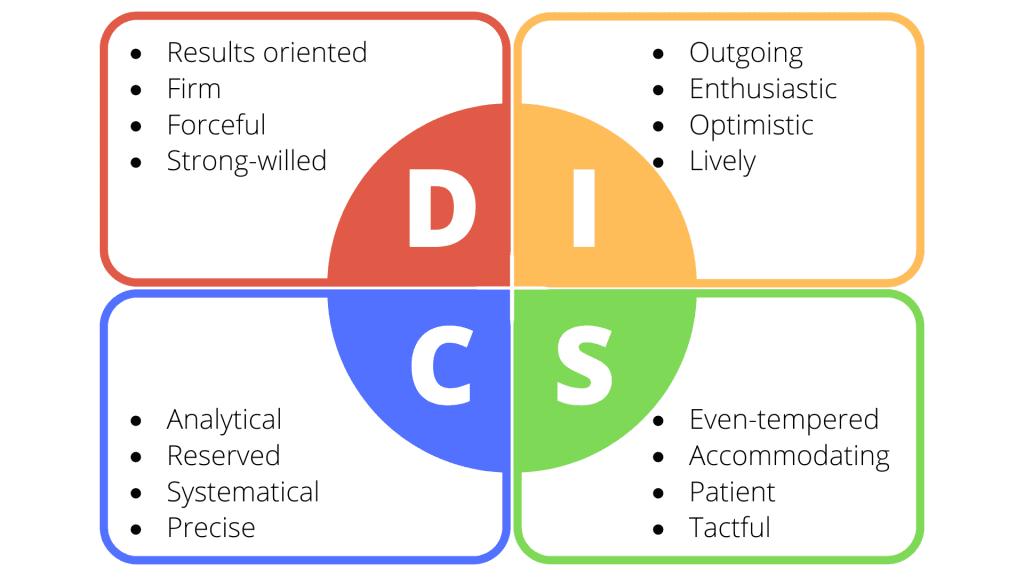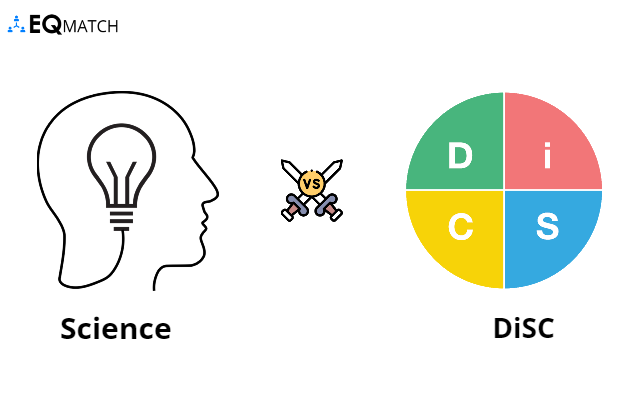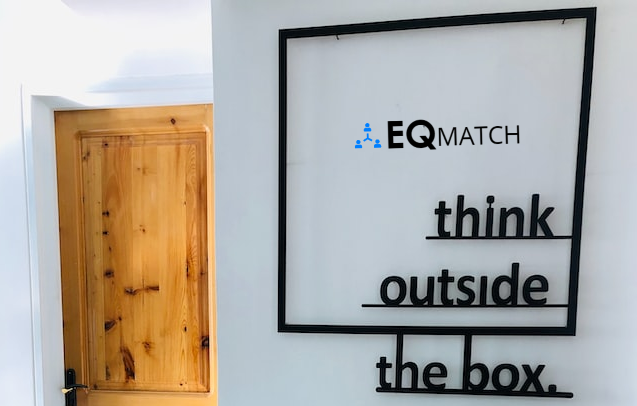Did you know that President Abraham Lincoln was sort of a “D” type personality based on the disc assessment?
Well, we can only guess that since the disc assessment test was not available back then!
What is DISC Assessment?
DISC assessment is a self-reported subjective assessment focused on identifying an individual’s personality profile in one of four categories.
This test also goes by names such as DISC assessment profile (or Disc Profile), DISC test, and DISC personality test.
Here is a quick snapshot of the disc personality types or disc profile:

disc profile
Please note that we will be using variations such as DiSC, DISC, and disc for the remainder of this article. All these terms refer to the same assessment theory.
History of DISC Theory and DiSC Assessment
An American psychologist, William Moulton Marston created the DISC assessment or the DISC profile.
After graduating with a Ph.D. in Psychology in 1921 from Harvard University, Martson married a lawyer Elizabeth (Saddie) Holloway Marston.
Together with his partner Olive Byrne, he had four children (two from each woman).
What does disc personality test stand for?
When his wife Elizabeth suggested a link between emotion and blood pressure, William invented a systolic blood pressure test, which eventually became a component of the modern polygraph.
In 1928, Marston published the book “Emotions of Normal People”.
He elaborated on the DISC Theory in this book.
In this book, he described an individual’s attention depending on the perception of the environment in four behavioral patterns as quadrants, named after the first letter of each pattern:
- Dominance produces activity in an antagonistic environment
- Inducement produces activity in a favorable environment
- Submission produces passivity in a favorable environment
- Compliance produces passivity in an antagonistic environment.
In the 1940s, Marston developed a comic series “Wonder Woman”, after discussing with his wife the idea of a new kind of superhero, who would conquer not with fists or firepower, but with love.
Interestingly, Elizabeth said, “Fine, but make her a woman”.
In 1956, industrial psychologist Walter Clarke created the first self-assessment based on Mastron’s DISC theory.
The assessment was in the form of a checklist, where respondents would choose adjectives that were accurate about them.
The purpose of the assessment was pre-employment selection.
In 1965, Peter F. Merenda and Clarke published a version of the assessment in the Journal of Clinical Psychology.
Instead of using a checklist, this version of the assessment incorporated a choice between two or more terms.
The behavioral patterns described by Marston were renamed, apparently in an attempt to broaden the appeal of the DISC Theory from being focused on human sexuality, to business-focused.
- Dominance >> Dominance
- Inducement >> Influence
- Submission >> Steadiness
- Compliance >> Conscientiousness
For marketing purposes, and as a registered trademark, the DISC assessment or DISC profile was also renamed to DiSC®.
Reliability and Validity
It is important to learn about the reliability and validity of a personality assessment profile before incorporating it for professional purposes.
Very little proper scientific evidence exists to support the validity and reliability of Marston’s DISC Theory and the assessment.
An inherent problem with self-reported assessments, like DiSC®, is that these assessments are subjective.
Subjective assessments like the Disc Assessment rely solely on self-reported “feeling”, rather than objective “factual” scoring.
Most “Validity Research” for the DiSC assessment profile comes from organizations that sell training courses or assessments.
DiSC measures the preferences of individuals.
Please note that preferences are not predictors of actual performance.
No valid scientific research links DiSC profiles and Job Performance or Turnover Intent.
Another issue with assessments like DiSC that use dipolar scales is that they do not have the flexibility to measure the spectrum of personality or behavior patterns.
And in reality, most people are actually in the middle of the scale or the “Bell Curve”.
Disc assessment cost and time
A disc assessment can cost between $24 and $100.
This also depends on a variety of factors such as the number of test takers, type of DiSC profile, and so on.
DiSC assessment results comprise a personalized report with tips and tools to improve productivity.
On average, it takes around 15 minutes to complete the disc quiz.
Why is the DiSC Assessment so popular?
The key to the success of disc assessment is its simplicity.
DiSC profiles are easy to remember and are self-explanatory.
Putting labels on people or putting people in “buckets” of personality profiles is simple, akin to astrology.
It is fun and a great conversation starter, but often has little to do with complex human psychology.

Use of DiSC Assessment in employee selection and hiring process
Dr. Wendell Williams criticized DiSC assessment in the hiring process, stating- “Marston’s objective was to describe “mental energy”… not assess and classify people for a job. “.
According to the Civil Rights Act of 1964, Title VII – Equal Employment Opportunity, pre-employment tests must be Professionally Developed and must be Job Related to and Consistent with Business Necessity.
This means that the DiSC assessment is illegal to be used as a pre-employment test since there is no scientific proof of job relatedness.
Learn more about the best personality tests for hiring
Alternative to Disc
All in all, the DiSC assessment has been criticized as pseudoscience.
The test is also not widely endorsed by the psychology academia.
Summarizing the shortcomings of DiSC® :
- Poor Validity: It is not based on any formal psychology
- Not related to employee performance or turnover intent
- Focus on measuring non-independent categories
- Self-reported, preference-based, and subjective
Since DiSC assessment is not apt for hiring, what is a good alternative?
Which is the best personality assessment for hiring?
HR teams can use an objective assessment such as EQMatch which has been developed by a team of psychologists.
A scientific alternative to the DiSC assessment, EQMatch Emotional Intelligence Test is an objective assessment.
Emotional Intelligence Use Cases
Objective Emotional Intelligence Testing
EQMatch is an objective pre employment testing software for enterprises.
This means that all questions have correct answers.
This makes ability evaluation fairer as it wouldn’t depend on personal perspectives or opinions.
Emotional Intelligence for Leaders
Scientific Validity
EQMatch has strong support in terms of scientific validity.
When developing the EQMatch assessment, the researchers took into account content validity.
All the concepts covered under the EQMatch assessment are rooted in established theories and methodologies.
Detailed Results
EQMatch results report incremental differences.
The scores of the assessment are also reported and interpreted on a continuum/spectrum of possible scores.
This allows for small differences to be observed among participant scores and higher accuracy in evaluating the participant’s position on the topic being measured.
Human Resources teams can use EQMatch emotional intelligence testing as part of the pre-employment process and for hiring since links between the level of Emotional Intelligence and Job Performance and Employee Turnover have been scientifically validated.




No responses yet